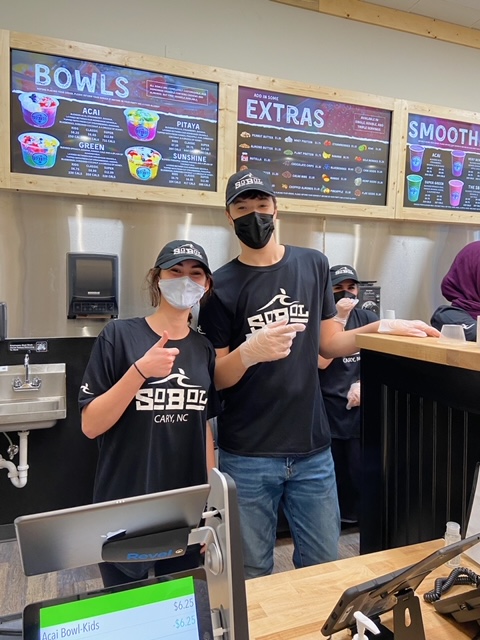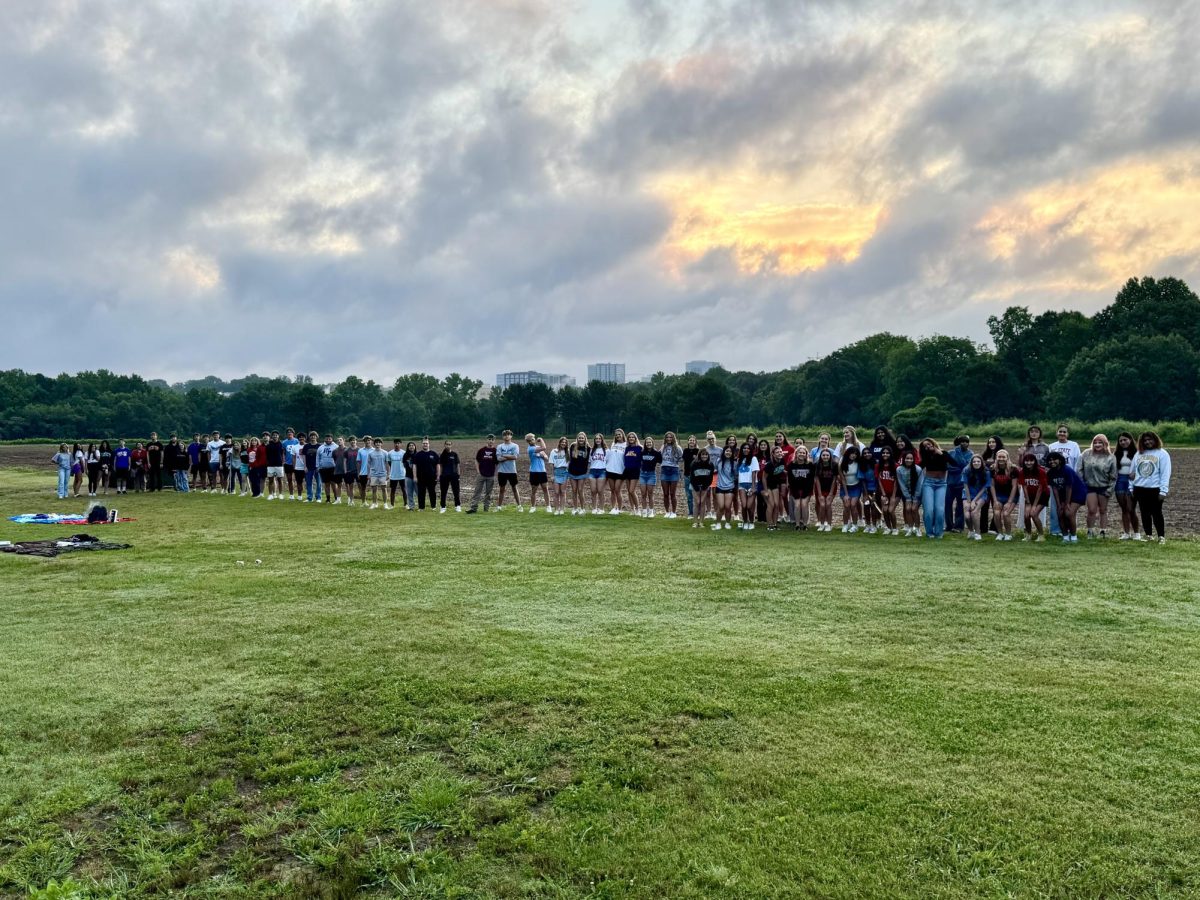This generation of high school students have a lot to deal with, especially when you add the responsibility of a part-time job into the mix. According to Walden University, 30 percent of high school students have jobs during the school year.
Having a job allows teenagers to learn real world skills and lessons, such as responsibility or learning to manage time. But along with it comes the additional burden of stress. Finding ways to manage this stress is essential to gaining said skills.
One student that has an after school job, Clare Roth, sophomore, quickly gets home after a long day at school. She has to hustle to change into uniform before she leaves to go to her part-time job at Hanks Downtown Dive Bar.
“I get off of work at 7:30 p.m, sometimes later so I have it a lot better than others,” said Roth.
Roth tends to work both after school and over the weekends. Roth juggles a stressful schedule of rehearsals for the fall play, school, work, and homework assignments.
“I try to get my work done before work and ahead of time so that I can still keep my job and do school,” said Roth.
Being a part of the working world has been a learning curve for Roth. She has had to accept that making mistakes doesn’t only affect one individual, but the whole working environment.
Once, Roth was unaware that a health inspector was in the restaurant and started filling up a watering can in the kitchen when all of the sudden the chefs started to lecture her. Roth then puzzledly stopped what she was doing and was informed of the presence of the health inspector and that filling things up in the kitchen was not allowed. While the experience was embarrassing for her, it taught Roth about the importance of adapting quickly and accepting your mistakes in a working environment.
Another after-school hard worker, Katie Carlson, junior, works at Chipotle over the weekends but occasionally gets scheduled to work during the school week. A good day at work for Carlson is when it’s not too busy, but also not too slow.
“My manager is good about working with me about my schedule so usually during the week I only work shifts from 4 p.m to 9 p.m.” said Carlson.
Carlson struggled with managing her time at first, especially if she had a full schedule with her extracurricular activities and school assignments during the week. Learning to organize her time properly proved essential to her employment status and maintaining good grades.
“It was stressful trying to stay on top of my work and my classes while managing extracurriculars, but I learned to section out downtime to do my classwork instead of just being on my phone or being unproductive” said Carlson.
Her job provides her with the skills to be more outgoing and patient, especially when she works in the stressful and unpredictable environment of the food service industry.
“I’ve also learned to be more organized because it can get pretty crazy during a rush and you have to keep a level-head and know where everything is,” said Carlson.
While jobs let high school teenagers meet new people, develop communication skills, learn from and accept mistakes, and gain an understanding on how to handle responsibility, teens should only get a job if they think they are capable of being employed and being an attentive student at the same time. However, if a student is struggling with keeping up at school already, they should not add the burden of a job because it could cause them to fall behind at school and to be over-stressed. Teenagers make decisions that impact their lives everyday, and should also be able to make the decision on whether to acquire a job or not.







